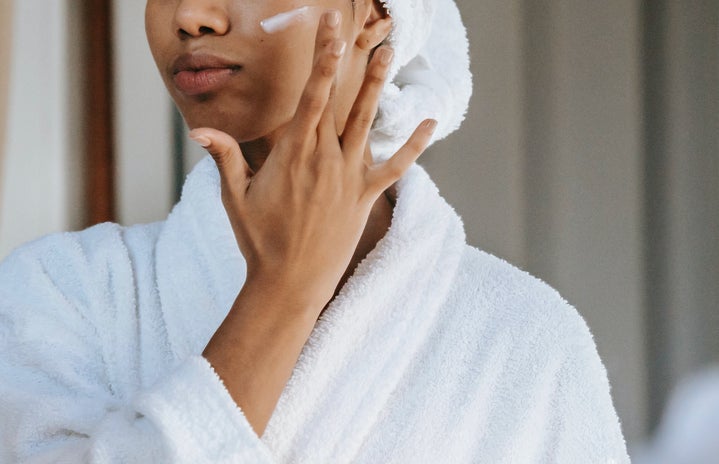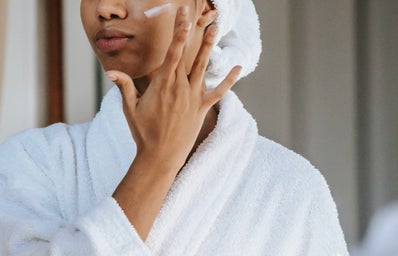In a lot of ways, we are in a new wave of mass consumption fueled by the unforgiving pace of social media trends. Skincare has transformed self-care from simple routines to a booming industry. In the age of Instagram and TikTok, the promise of glowing, glassy skin is dominating feeds, and women especially are caught in the crossfire.
Women are already a primary audience for beauty products, targeted by flaw-focused advertising and unrealistic body standards. The threat of misinformation rises with the evolution of advertising to fit the demands of rapid consumption. Audiences shift their viewership from news stations, radio, articles, and newspapers to social media. It’s nearly impossible to escape the consumer culture, especially since ads are sneakily tailored to users’ preferences and likes. Promotions for skincare products are often disguised as honest reviews and when the story is told just right, the products become trendy.
Skincare hoarding is a new culture that came from this pressure to try every convincing viral trend from slugging to skin cycling. It’s bad for wallets, bad for the environment, and leads to piles of unused products that end up just collecting dust. The allure of social media lies in its accessibility. Advice, reviews, and recommendations are always just a swipe or search away. But for those looking for solutions in skincare, this landscape is a minefield.
Unqualified advice is the first risk. Many influencers lack professional training, but their undeniable, glowing skin gives them enough credibility to influence tens of thousands. The one-size-fits-all mentality of these promotions is another selling tactic. Popular trends ignore the vast differences in skin conditions, so when a product works for one person, it doesn’t work for many others—then it’s another dusty bottle on the skincare shelf.
So, what can we do to keep our wallets (and our skin) safe? The answer might be simpler—and cheaper—than you think. The first solution is to listen to the right people. For skin health, take advice from a dermatologist. There are actually a lot of verified professionals on social media working to combat this hurricane of misleading health advice. Knowing how marketing works is another important skill when participating online. It’s important to remember the power of fear-based advertising and to focus on your needs over your wants. Make it harder to be convinced. Do research beyond the 15-second promo. If you are an influencer, promote transparency. Viewers have the right to know when creators are being paid to promote, and platforms should implement better methods for credibility, like certification badges.
And finally, embrace minimalism. Taking care of your body should not be stressful. In fact, most skin types thrive on just basic routine cleanser, moisturizer, and sunscreen. Simplifying skincare could be the solution that is needed. Social media has the potential to educate and empower—it could happen with mindful conversations and with curbing overconsumption. Instead of trend-driven solutions, we could focus on science, sustainability, and self-acceptance.


